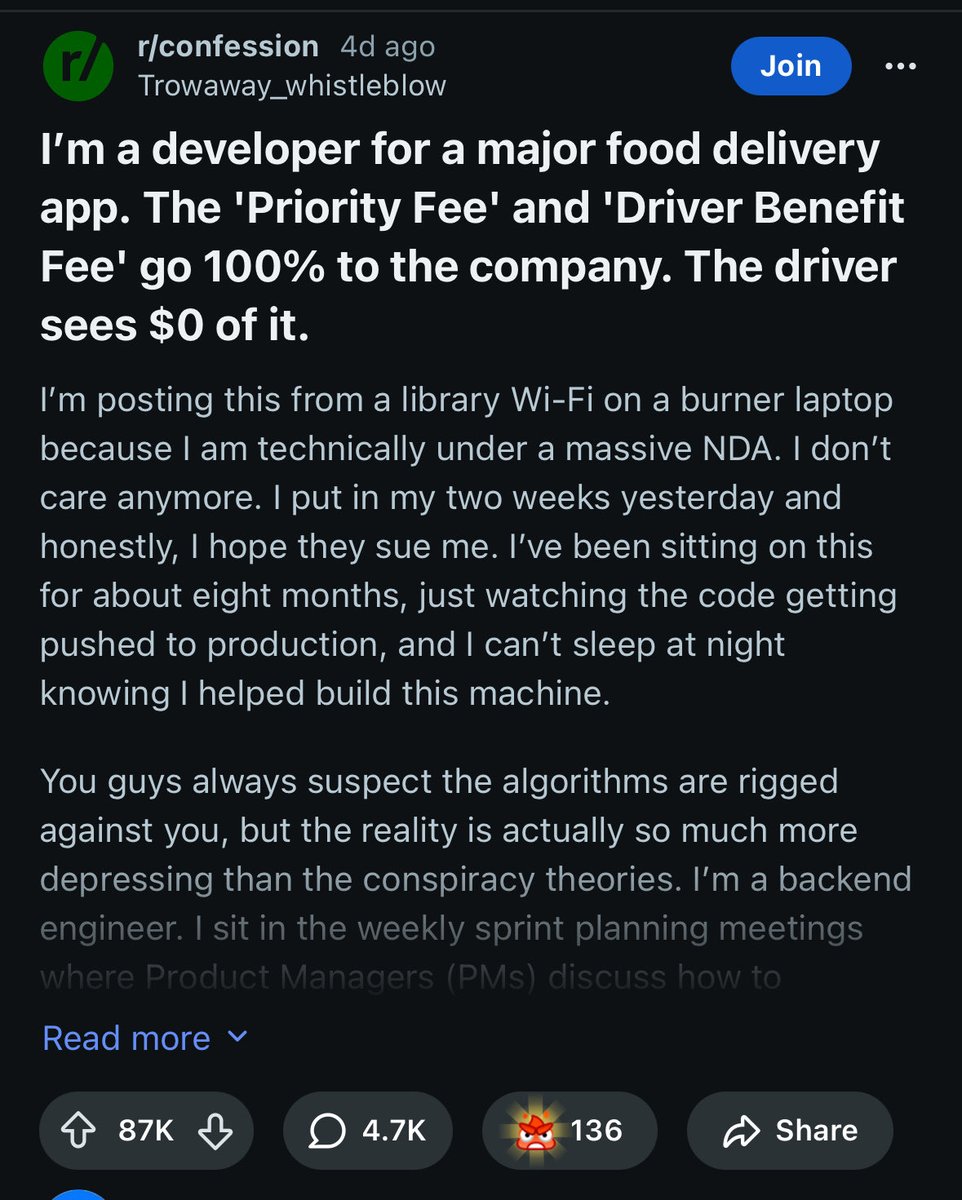Big Tech that has announced return to the office - usually as a hybrid setup with 2/3 days/week - and when it's due:
- Microsoft: 28 March
- Meta: 28 March
- Google: 4 April
- Apple: 11 April
Who wins: policy? Exceptions for devs threatening to quit? Startups hiring remote?
🍿
- Microsoft: 28 March
- Meta: 28 March
- Google: 4 April
- Apple: 11 April
Who wins: policy? Exceptions for devs threatening to quit? Startups hiring remote?
🍿
For all the above companies, the plan has always been to return the office.
What has changed since is how many of their competitors became remote-first since. E.g. Twitter, Shopify. And how well-funded startups are hiring full-remote and are desperate to hire from these places.
What has changed since is how many of their competitors became remote-first since. E.g. Twitter, Shopify. And how well-funded startups are hiring full-remote and are desperate to hire from these places.
Several DMs later:
Google, Microsoft and Facebook are all extremely chill about engineers coming back to the office. Most engineers I talked to won’t go back / have exceptions / their manager allowing remote.
Only place where it’s serious is Apple. Seems no way out there.
Google, Microsoft and Facebook are all extremely chill about engineers coming back to the office. Most engineers I talked to won’t go back / have exceptions / their manager allowing remote.
Only place where it’s serious is Apple. Seems no way out there.
At Meta, today was the deadline to request a remote exception. The people I talked with all expect to get the exception. Eng managers are banket approving all of them and many assured folks that they won’t track who comes when or who doesn’t.
All eyes on what happens at Apple.
All eyes on what happens at Apple.
• • •
Missing some Tweet in this thread? You can try to
force a refresh







